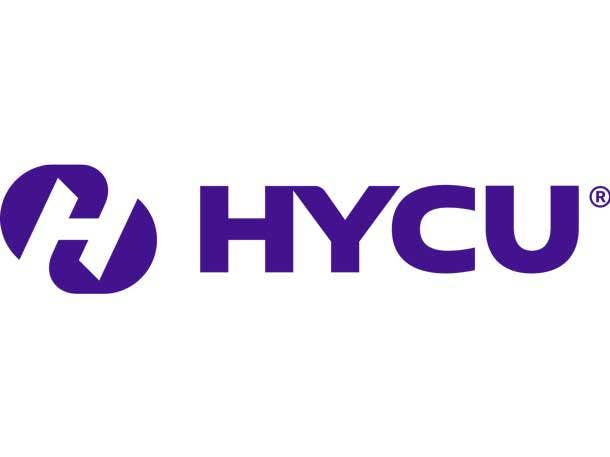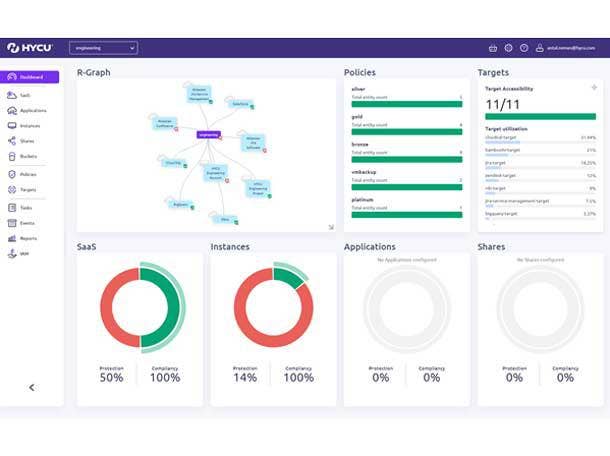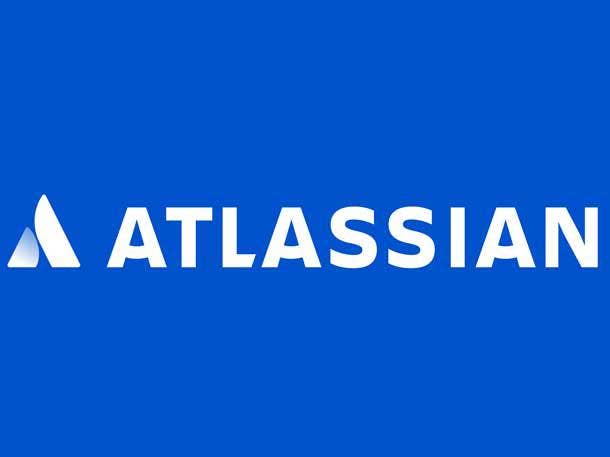HYCU Unveils R-Cloud Platform For SaaS Vendors To Build Data Protection
‘We want to protect the world from a SaaS perspective, and there’s 17,000 different SaaS services. How can we do that? We certainly can’t build 17,000 different SaaS products. We certainly can’t build integrations into 17,000 companies. And that’s when lightning struck. It shouldn’t be us building 17,000 integrations. We should be a platform that allows 17,000 SaaS vendors to write to us,’ says HYCU founder and CEO Simon Taylor.

HYCU founder and CEO Simon Taylor
Taking Data Protection To The Next Level
Cloud and SaaS data protection technology developer HYCU Wednesday introduced a new platform called R-Cloud that aims to make it possible for any SaaS vendor to add data protection to their offerings. HYCU founder and CEO Simon Taylor told CRN the aim was to make it easy for the 17,000 or so SaaS vendors, most of which have not implemented data protection for the data used by their applications because of the expense or lack of skills needed to do so.
With R-Cloud, HYCU has opened up the APIs of its flagship HYCU Protégé data protection technology to any SaaS vendor to build the needed integration for their applications and will even help write the integration if needed, Taylor said.
“We certainly can’t build 17,000 different SaaS products,” he said. “We certainly can’t build integrations into 17,000 companies. And that’s when lightning struck. It shouldn’t be us building 17,000 integrations. We should be a platform that allows 17,000 SaaS vendors to write to us.”
[Related: 2022 Storage 100: Who’s Got Your Backup?]
HYCU, which sells its data protection technology exclusively through channel partners, on Wednesday also introduce R-Graph, an application that automatically discovers an entire environment’s data via a single sign-on and builds a tree so customers know where all their data is.
HYCU is well-funded and well-set for future growth, Taylor said. The company in June 2022 opened its Series B round of funding, which included strategic investors Cisco Systems and Atlassian. The round continued in September when Okta Ventures joined it. Total investment so far in HYCU is $100 million.
Here is a look at HYCU’s latest technology and where the company is going in the future.

First, define HYCU.
HYCU stands for hybrid cloud uptime. We are the world’s fastest-growing cloud data backup company, or Backup-as-a-Service business. The company today has over 3,600 customers in 78 countries and holds a 90 NPS [Net Promoter Score]. We designed our business around two major concepts. The first was to inject a true SaaS offering into the wider universe of backup and recovery, make things very, very simple to use, accessible via turning it on, not downloading it, making it true SaaS. The other problem we initially set out to solve was what we call the ‘equivalency challenge,’ which is, if you look at the history of data protection, there were great backup vendors who supported Unix back in the day, somebody else for Windows, somebody else for VMware. But in today’s world, where data is not just in one place, it’s in multiple places, HYCU wanted to create an end-to-end solution that could provide equivalent levels of data protection support, both on-prem and in the public cloud, and from a SaaS perspective.

You mentioned ‘fastest-growing.’ Can you quantify that?
Sure. Two years ago, we grew 450 percent, then 200 percent, 150 percent. Year on year on year, we have consistently had over 100 percent growth. And I think that speaks volumes about the extent to which HYCU was really becoming a major player in the data protection space. And in the Gartner Magic Quadrant, for the first time ever HYCU was listed as a visionary.
Congratulations on that. Does HYCU provide its own cloud for customers”
HYCU truly believes in freedom of choice. From a storage perspective, we don’t buy into this paradigm that you automatically sell storage along with data protection. We believe flexibility is what makes HYCU so successful. And so we’ve integrated with every single cloud vendor so that you can actually choose which target you want to use. You can also use SMB, NFS or NAS devices as a target. I think we run the gamut in terms of providing that level of flexibility. So it’s simple. It’s turnkey. And it also doesn’t lock folks in. And I think one of the challenges we’ve seen over and over again is that our competitors are also selling storage, or in some ways discounting the heck out of the software just to stick customers with a big storage bill. We believe customers from a TCO perspective are better off deciding which storage works best for them and then using the world’s best multi-cloud data protection solution to provide the data protection layer.

So what’s the big news?
[HYCU] was originally designed from an architectural perspective with this belief that customers were never going to keep all their data in one place. And so the way we built our offering was with purpose-built backup services towards each different cloud. And then we natively integrated them into the data sources, knitted them all together under a single pane of glass, and we call that HYCU Protégé.
Well, we read a statistic that really terrified us: The average midmarket company does not have their data in five or six different places. In fact, the average midmarket company today has its data in over 200 different data silos, according to Zylo. And if you think about it, yes, you might have three clouds that you’re using. Yes, you’ve got a couple of on-premises environments. But then think how many different silos are created when you have to put all of your data in so many different SaaS apps. Frankly, I didn’t believe it. So we ran an analysis on our company with 300 people. HYCU alone has 76 different data silos. And so exponentially as you get into companies with 1,000 people, 2,000 people, 3,000 people, 10,000 people, we’re talking about an almost unlimited number of data silos. That’s almost impossible to control. CIOs can no longer see where all the data is, and they certainly can’t protect it.
All the SaaS vendors get the question, ‘I lost some data, can you please give it back to me?’ So we sent all of our SaaS vendors emails that said, ‘Hey, we lost a little bit of data, how do I recover?’ In each case, we got a letter back from their legal departments saying they have no legal obligation to recover our data. And that’s when it clicked. My goodness, from a data management and data protection perspective, we believe that over 80 percent of the world’s data, even in companies that think they have data protection, is still unprotected because of SaaS. We want to protect the world from a SaaS perspective, and there’s 17,000 different SaaS services. How can we do that? We certainly can’t build 17,000 different SaaS products. We certainly can’t build integrations into 17,000 companies. And that’s when lightning struck. It shouldn’t be us building 17,000 integrations. We should be a platform that allows 17,000 SaaS vendors to write to us.

How are you doing that?
HYCU is introducing what we call R-Cloud, the world’s first development platform for data protection, backup and recovery. We think it really does turn the industry on its head. From a SaaS vendor perspective, they will be able to log into HYCU and use our simple low-code no-code platform to very quickly and easily build an integration in as little as four days fully certified on our platform. It goes into our app store.
For the end customer side, though, there was another problem: How can we ensure that a CIO, VP of infrastructure, IT person or CISO can regain control of this massively complex data state? And so for them, we built R-Graph. R-Graph automatically discovers an entire environment via a single sign-on provider. It then illustrates where all the data is in this beautiful tree. And it effectively automatically discovers where every piece of data is in every data silo, and creates a tree that shows by department which SaaS services are being used across the company. It then tells which of those SaaS services are protected and which are not. For those that are not, you can click on it, and it pulls up the app store to turn on the integration. So we are essentially helping these IT folks regain control of their entire data estate and providing SaaS vendors with a simple and easy framework so that within just a few days, they can provide their end customers with true enterprise-level data protection.

You said R-Cloud is a development platform for 17,000 SaaS providers to use HYCU for data protection. How do you convince 17,000 SaaS providers to use that? Their developers are probably busy developing their own applications.
That’s exactly the problem. From a ransomware perspective, we’ve spoken to a lot of CIOs who say there’s a lot of SaaS tools they love, but they’re not going to roll them out across entire company [because they can’t ensure compliance]. They simply don’t have the data protection in place. If you ask the SaaS vendors, they’ll say exactly what you said: ‘I don’t have time to go and build backup and recovery. That would take a year. That would take 20 percent of my engineering team, and I’d have to hire a different skill set. There’s no way that we’re ever going to be able to do that.’
But this creates a real conundrum. We’ve heard examples of a SaaS vendor that had $500 million ARR [annual recurring revenue]. And they called up a number of our competitors and said, ‘Would you please build a backup integration for us?’ And our competitors in the backup industry said, ‘No way. You’re too small, the TAM [total addressable market] won’t be big enough.’ Well, this is a real problem because that SaaS vendor really has nowhere to go. They can’t convince anyone to build backup for them, and they don‘t have the expertise in-house to do it. So this is why we’re opening up HYCU. We’re taking our Protégé platform, sort of tearing the head off, opening up all those APIs, and saying to the SaaS vendors, ‘You don’t need to call us and ask for permission. You can simply within a couple of days write this integration, or we’ll help you with it.’ And when that integration is there, you can just point your customers to HYCU. And they’ll have end-to-end data protection as a service. So we’re going to build it for them. We’re also going to offer professional services to help the customer actually build it and certify it on the platform. But we also believe that we’ve made this so darn simple with low-code no-code that any trained engineer should be able to build this in just a couple of days.

Since you’ve come up with R-Cloud, have you had any SaaS vendors take advantage of it yet?
Absolutely. A lot of people ask me why Atlassian invested in HYCU. And the reason is because they knew what we were doing with R-Cloud. And they said, ‘My goodness, we have so many Atlassian products and we absolutely have this real problem, we have a real need for this. So if we can use leverage R-Cloud, we’d love to do that.’ And in fact, in our first release, you’ll see that integrations for both Atlassian Jira and Atlassian Confluence are already in the app store.
A lot of people also ask why Okta Ventures invested in a data protection company. You know, I explained R-Cloud to Okta, they said, ‘Ah, so you’re going to integrate with Okta in order to build that R-Graph tree so you can actually figure out and automatically discover these customers’ environments.’ We patented that approach, in fact, because it was such a unique way of leveraging single sign-on to provide additional value. And we think there’s a much larger partnership with Okta in the works as well.
You think there is a larger partnership with Okta? You would know.
There is.
Total investment in HYCU so far is over $100 million. Any plans for further funding rounds?
Our goal is to build a multigenerational company that goes the distance and is ultimately able to IPO. Right now, we’re just heads-down-focused on great growth, and focused on bringing R-Cloud to really democratize data protection worldwide. And I think if we can do that, the sky’s the limit in terms of what our optionality will be for next steps in terms of funding.
HYCU has never made an acquisition. Could you do so in the future?
We certainly could. With R-Cloud, when we think about the 17,000 SaaS vendors, there’s probably 150 or 200 of them that are really the top top tier. And our goal is to make sure we can get to scale as fast as possible with R-Cloud so we can provide true end-to-end coverage of our customers’ data states. And in those cases where we see acquisition optionality, we’ll certainly be considering that.